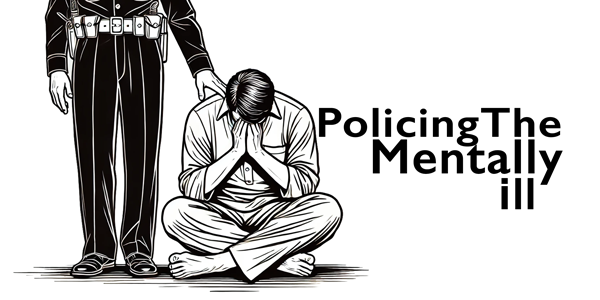POLICING THE MENTALLY ILL

Police Officers Are The First Responders To Mental Health Calls
…yet we have the least training to for it.
Policing The Mentally Ill
Will teach you how to respond to mental health calls, without making mistakes that make it worse.
In this two-day course you’ll learn about mental illness and methods for responding to people in crisis.
You’ll also learn:
Recognizing mental illness
The classic characteristics of mental disorders
Understanding the Spectrum of Autism
Crisis management techniques to de-escalate tense and dangerous circumstances
Understanding PTSD and Traumatic Brain Disorders in veterans with combat training
Recognizing and articulating mental illness in use of force incidents
Suicide by Cop
Understanding mental retardation and intellectual disabilities
Understanding and recognizing psychosis
Dealing with alcohol and drug-induced psychosis
Understanding mental illness for first responders
Tactics for encountering the mentally ill
How to use active listening skills
How to disconnect the emotions from the event
Building rapport
How to encourage behavioral change
The many ways you can make the situation worse
Words you should never say
Tips on how to use your voice to diffuse the situation
How to ask questions that they’ll respond to
Policing the mentally ill includes hands-on scenarios where you can test and refine your skills.
You’ll receive PSA’s Street Sheet™: A quick reference sheet that gives you an at-a-glance reference of mental illness indicators. It will guide you to make a high or low risk evaluation & potential responses.
You’ll also receive a quick reference guide for active-listening responses to communicate with the citizen and tactics to diffuse the situation.
Cost: $350
Prerequisite: Students must be commissioned peace officers, reserve officers, or act under the umbrella of a public safety agency.
Who Should Attend: Public servants who make “first contact” with our mentally ill community: First-line Supervisors, Patrol Officers, Jail/Prison Officers, School Police, 911 Call Takers, Dispatchers, Social Services, and more…
Dress Code: Uniform, business casual or the uniform of the day.
Lodging and Meals: Students are responsible for their own hotel and meals.
To host this class, contact Nick with the information below.
